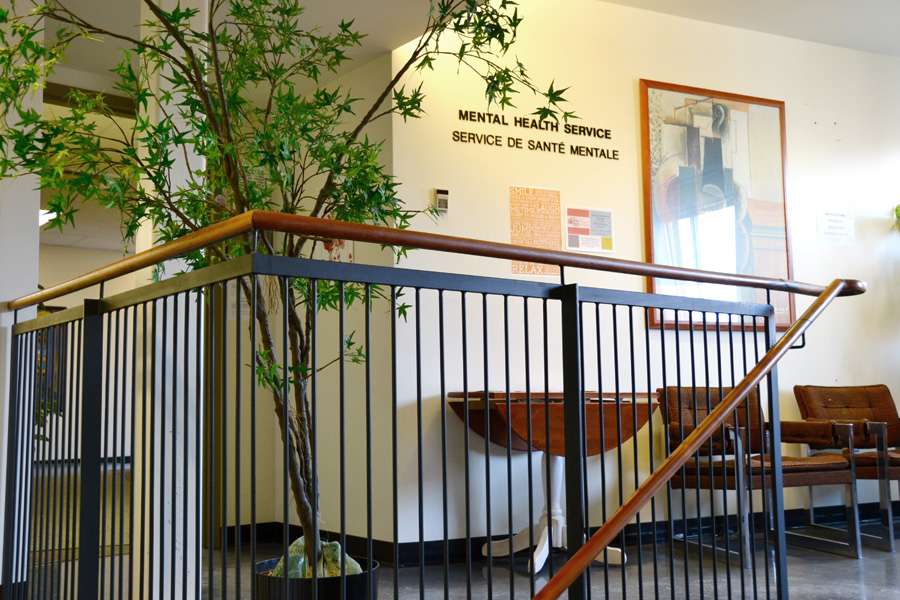Falling leaves and changing colours illustrate the transition into autumn. They also mark the beginning of midterm season. Stress levels in McGill students tend to skyrocket during this time. In order to combat this, McGill Mental Health Services (MMHS) has implemented a number of initiatives to aid students in coping with stress.
Located on the fifth floor of the Brown Student Services Building, the comfy chairs and large windows of the clinic create a feeling of openness and acceptance. This is the ideology that MMHS maintains.
This is significantly beneficial for students, especially during this busy, stressful time of the year. Emily Yung, the Mental Health Education Coordinator, highlighted the hike in student traffic at the clinic during exam periods.
“We’ve seen a sharp increase in walk-ins, in particular during midterms and finals,” Yung said. “This got as high as 100 emergency student walk-ins in one week during finals in 2013.”
Although MMHS is heavily focused on assisting students by way of their clinical team, Yung explained that their services are anything but restricted to the clinic.
“For the last four years, Healthy McGill […] has run the Peer Health Education and Outreach program, with Mental Health [Services] informing the content in reaching out to students during midterms,” she said.
Volunteers in bright yellow shirts and bright smiles make up the team of Peer Health Educators, who seek to facilitate a healthier mental culture through workshops, presentations, and active tabling around campus.
“[We strive] to reduce mental health disorder symptoms and return people to their daily life activities, enabling them to reach their academic and personal goals,” Yung explained.
Beyond this direct approach of informing students, MMHS has also leaned towards social media to reach out to a larger population. The “No Health Without Mental Health” video campaign was released last year, and addressed topics such as the sources and remedies of stress from students at McGill.
Another initiative implemented by MMHS last year was the Self-Care Challenge. Given the demanding lifestyles of university students, it is easy to neglect one’s mental well-being. This campaign aimed to remind students that partaking in small actions can contribute immensely towards the maintenance of mental health, while encouraging individual development.
These initiatives have been met with a supportive response from the students. Cindy Li, U0 Science, had high praises for the efforts that MMHS has taken to inspire a healthy state-of-mind for the student population.
“The detrimental effects of stress are usually kept under wraps, and that isn’t the right way to approach it,” Li said. “I think that it’s a great idea to bring it into the open—to educate people about the ways it can alter mental well-being.”
However, Li reflected that not enough students know about these initiatives.
“It seems that a majority [of students are] oblivious about these services— I was once a part of that majority,” Li said. “McGill’s Mental Health initiatives are something a lot of students would benefit from, especially around midterms and finals time. The absence of its prevalence is quite unfortunate.”
Frederick Lavallee, U2 Management, suggested that MMHS could reach a wider audience through online promotion.
“Social media is definitely a good place to reach out to a lot of students,” Lavallee explained. “Emails can be very effective, as well as advertising through faculty Facebook groups.
According to Lavallee, it is important for students to reduce the stigma surrounding mental health.
“Students will perhaps feel more prone to participating in these initiatives if they can see that their peers are also seeking ways to cope with stress—if they understand that everyone is in the same boat,” Lavallee said.








